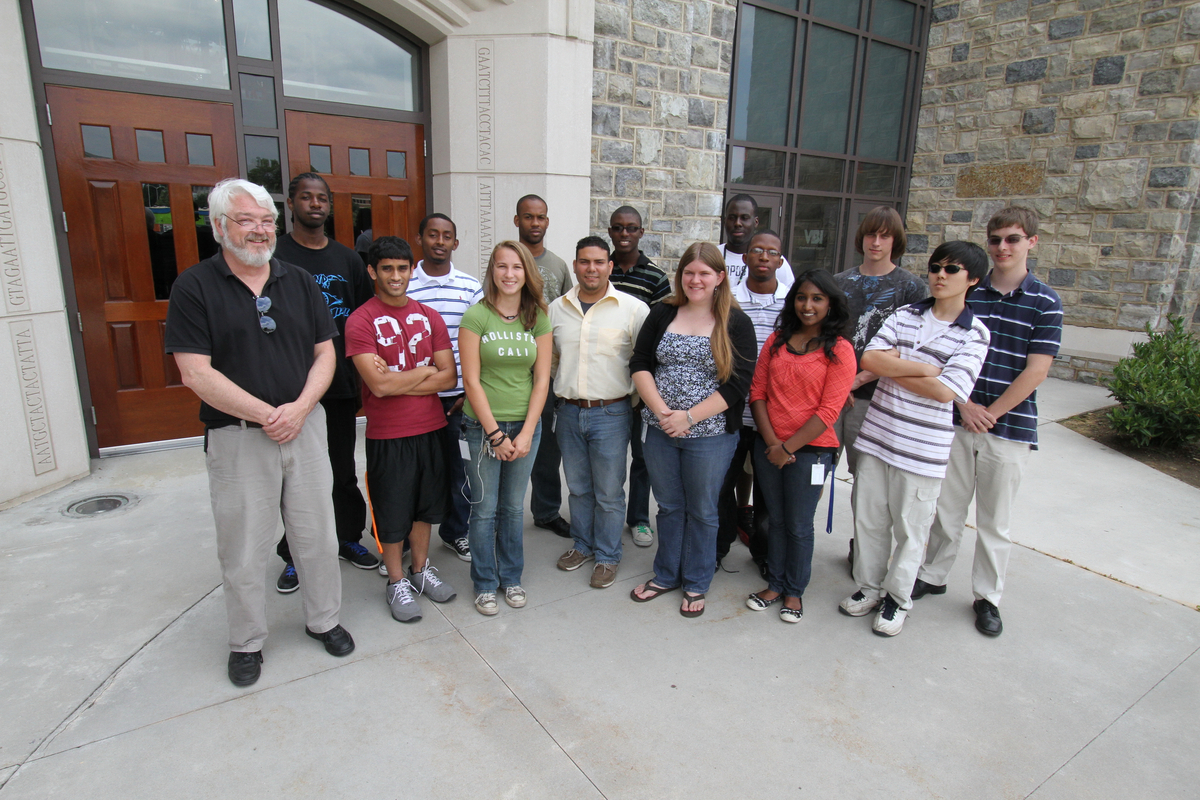

The Ethics of Scientific Publications (VBI Summer Program)
Funded by the National Institutes of Health (NIH), “The Ethics of Scientific Publications” is a program that has brought students to Virginia Tech’s on-campus bioinformatics research facility for seven weeks over the summer to work in VBI Executive Director Harold “Skip” Garner’s research group. While there are many local students participants from several Montgomery County high schools and Virginia Tech, some of the students have travelled from places like Alabama, Mississippi, and Illinois, and even as far away as Ethiopia, to participate in the program.
The students are assisting the Garner research group with computer programming and system testing for the text similarity resource eTBLAST (http://ethics-program.vbi.vt.edu/), which is an online tool developed by the group to compare scientific journal submissions to articles in existing databases in an effort to identify potential duplicate citations before they are published in scientific journals.
eTBLAST feeds information to Déjà Vu, an online database also developed by Garner’s team, that features instances of duplicate and possibly plagiarized articles, uncovered from in-depth searches of the National Library of Medicine’s bibliographic database, MEDLINE.
The students have been curating large amounts of data for the project, helping to identify scientific papers with comparable text, which the students call highly similar pairs. The team has also been gathering data from Chinese scientific publications to be analyzed by a group of students from the University of Science and Technology Beijing, who will be visiting VBI at the end of July.
According to Bill Kovarik, leader of the summer program and professor of Communication at Radford University, the students aren’t just providing system programming support for the project; they’re asking important questions about the data they are collecting and analyzing in an effort to put the eTBLAST findings into some sort of context.
In addition, Kovarik has been leading ongoing discussions with the students about the role of ethics in scientific research. “Ethics is the foundation of science,” Kovarik explained. “You don’t want people to use tools like eTBLAST without some kind of ethical orientation. We also discuss ideas about ethics and science as a whole. It’s more than a small list of things you don’t do, such as copying someone else’s work.” The students are divided into four teams: curating, design, coding, and education.
The curating team collects and analyzes text from the publications, while members of the education team are working to characterize the results. The design team is building an ethics education website that will showcase the students’ summer work and will be used as a scientific ethics teaching tool. The coding team is developing interactive elements for the website, such as quizzes, games, and an ethics IQ test.
The website, along with a paper detailing the group’s work, will be the final product consummating the group’s efforts.